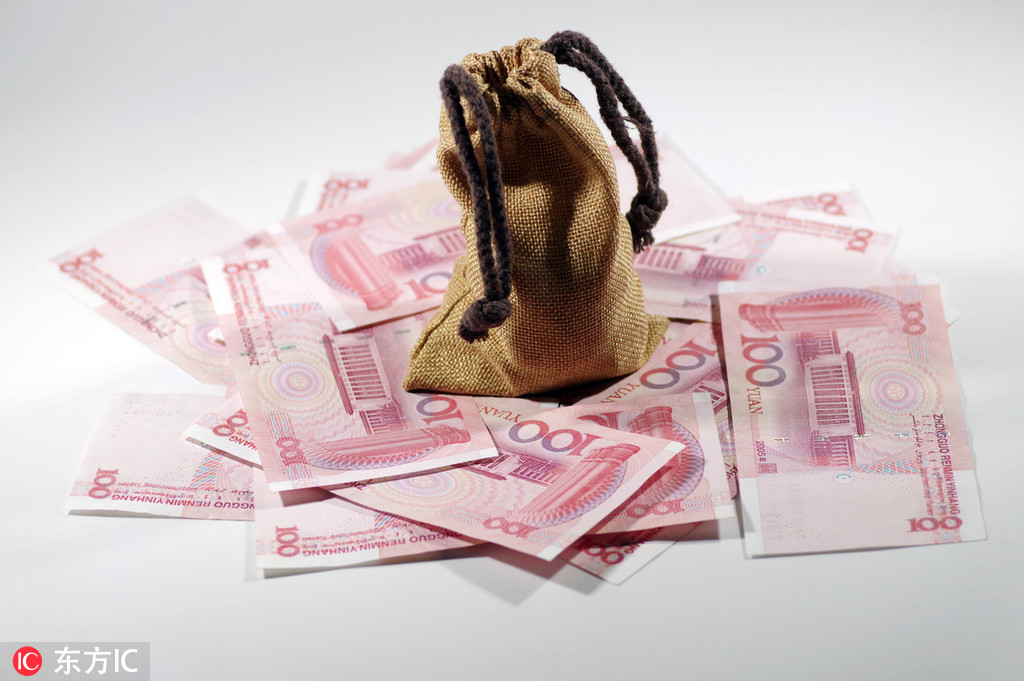Amid inflation expectations, PBOC unlikely to adopt policy easing, rate cuts


Concerns about the stability of prices could deter China's central bank from immediate policy easing or big interest rate cuts to bolster economic growth, investors and economists learned over the weekend when the monetary authority warned of inflation expectations spreading.
This year's consumer goods price rises have drawn the attention of the People's Bank of China, the central bank. Moreover, the drop in manufacturing product prices raised the challenges to stabilizing industrial investment, the PBOC indicated in a quarterly report issued on Saturday.
This difficulty may ease in the second half of 2020, when food price rises will moderate and consumer inflation will be tamed, the PBOC forecast in the report. Before that, it might be wise to maintain a prudent monetary policy, analysts said.
The monetary policy will remain stable, though it can be slightly adjusted according to changes in economic growth and price levels, to prevent the spread of inflation expectations, the central bank said.
After reading the PBOC's third-quarter monetary policy report, Li Qilin, a senior researcher at Lianxun Securities, said "The current market interest rate level might have achieved the central bank's target, and investors should not expect the PBOC to reduce the financing cost for the real economy by immediately lowering the market or risk-free interest rate."
That means China will continue to be one of the few major economies maintaining the "normal" monetary policy. Unlike some developed economies that restarted quantitative easing and other "abnormal" measures, economists said Chinese policymakers are striking a balance between controlling the total money supply and improving the efficiency of the monetary policy transmission system.
The PBOC could become more reluctant to deliver high-profile policy stimulus in coming months amid the consumer inflation and a risk of a wage-price spiral, unless inflationary pressure and expectation stabilize, said Lu Ting, chief China economist at Nomura Securities.
Consumer inflation, indicated by the consumer price index, rose to 3.8 percent in October, the highest level in seven years, up from the year's low of 1.5 percent in February. Factory-gate prices dropped by 1.6 percent last month, compared with a 0.9 percent rise in April, according to the National Bureau of Statistics.
The slowing of investment growth and moderated industrial production restrained bank lending in October. The PBOC highlighted that the pressure of social credit contractions should be released. It plans to further improve interest rate reform, based on a shifting of the benchmark lending rate, to reduce companies' borrowing cost.
The loan prime rate, the new benchmark, which has been used for newly issued bank loans, will be introduced to outstanding loans. "Meanwhile, competition in the deposit market should be sustained, to ensure that banks' costs can remain stable," the PBOC report said.
Lu, of Nomura Securities, predicted there will likely be no cuts in banks' reserve ratio before spring 2020. The PBOC may provide additional liquidity via additional interbank lending facilities such as the medium-lending facility.
The central bank will also maintain a stable exchange rate for the renminbi and steadily improve RMB capital account liberalization, to support the currency's usage in cross-border trade and investment. The report indicated that it will continue to improve the mechanism for the issuance of RMB bills in Hong Kong.
Globally, the monetary easing environment has raised financial asset prices and facilitated debt accumulation, while fragility of the financial system is rising, the PBOC said. Against that backdrop, risk factors may lead to a rise in risk aversion and threaten financial stability, which can affect the global economy.
"Slow growth, low inflation and low interest rates" will challenge the monetary policy, and the interest rate policy has "limited room" to offset the influences, the PBOC said.




































